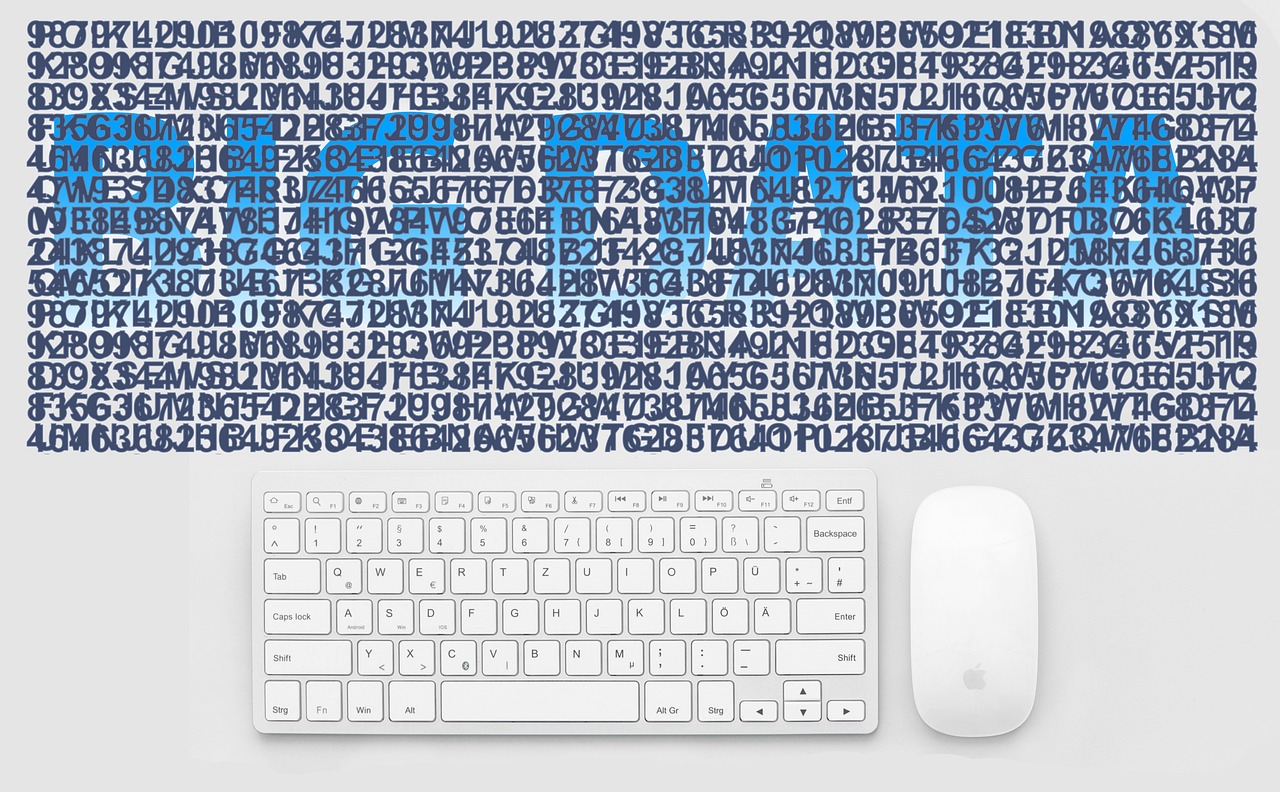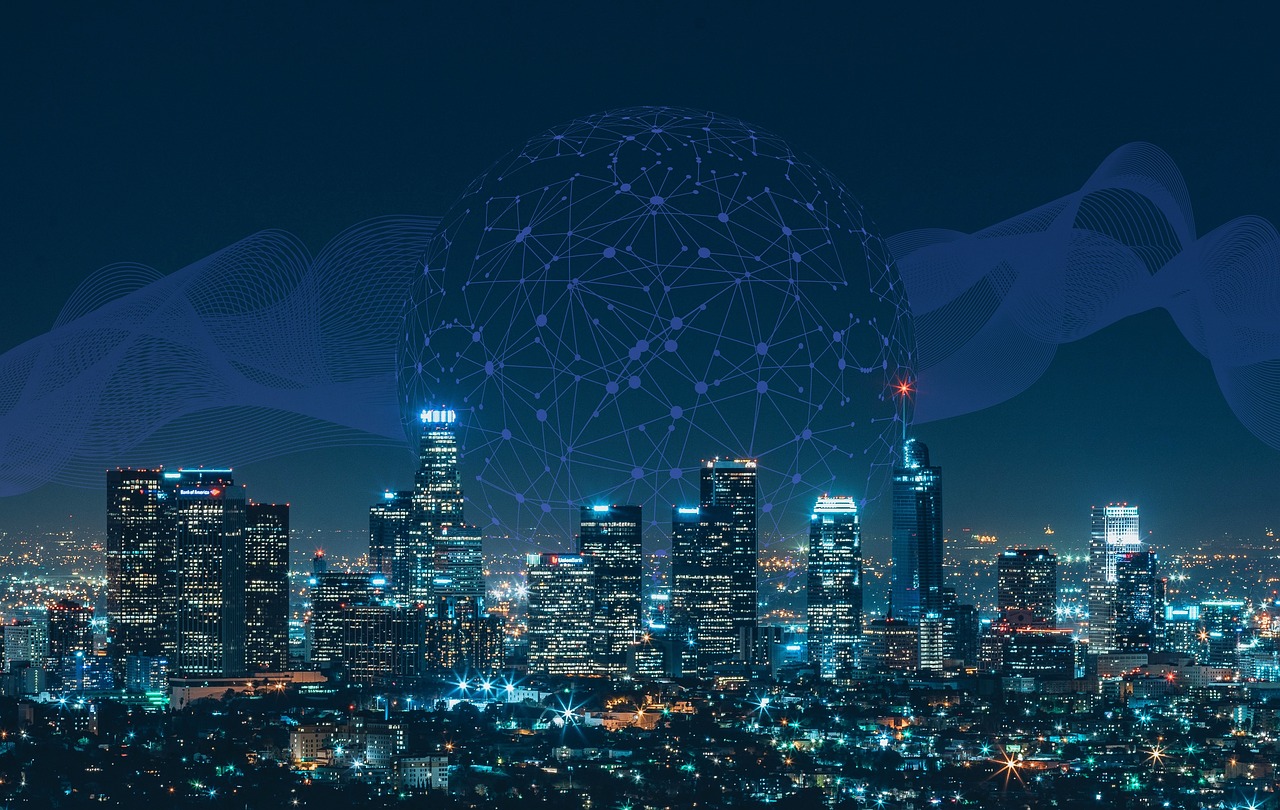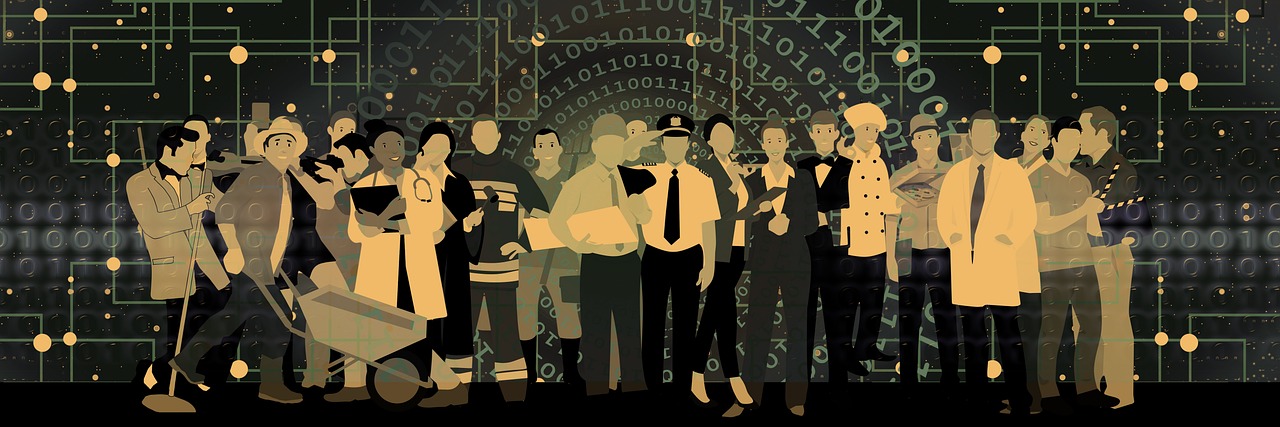The Intersection of Data Science and Social Change
In an era where information is abundant, the ability to harness that data for meaningful change has become increasingly vital. Data science has emerged as a powerful tool, reshaping the landscape of social change by providing insights that can drive impactful decisions. Imagine a world where data is not just numbers on a spreadsheet, but a beacon guiding communities towards progress, equality, and justice. This intersection of data science and social change is not merely a trend; it is a revolution.
At its core, data science involves the extraction of knowledge from vast amounts of data through sophisticated techniques like machine learning, statistics, and data visualization. These methods enable organizations to identify patterns, forecast trends, and make informed decisions that can lead to significant societal advancements. For instance, consider how data analytics can reveal disparities in education, income, or health outcomes among different demographic groups. By highlighting these inequalities, data scientists empower advocates and policymakers to implement targeted interventions that address the root causes of social issues.
Moreover, data science is not just about identifying problems; it also plays a pivotal role in crafting solutions. Through the analysis of community data, organizations can tailor their programs to meet the specific needs of the populations they serve. This data-driven approach not only enhances the effectiveness of outreach efforts but also fosters a sense of ownership and engagement within the community. When residents see that their voices are being heard and their needs are being prioritized, they are more likely to participate actively in initiatives aimed at improving their circumstances.
As we delve deeper into this fascinating intersection, it becomes clear that data science is not a standalone field. It intersects with various disciplines, including sociology, public health, urban planning, and environmental science, creating a multidisciplinary approach to solving complex social problems. For instance, urban planners utilize data analytics to optimize city layouts, ensuring that resources are allocated efficiently and that all community members benefit from improved infrastructure and services.
However, with great power comes great responsibility. The ethical implications of using data in social initiatives cannot be overlooked. Issues such as data privacy, algorithmic bias, and the potential for misuse of information pose significant challenges that must be addressed. It is essential for data scientists to engage with communities transparently, ensuring that the data collected is used ethically and responsibly. This relationship between data scientists and the communities they serve is crucial for building trust and fostering collaboration.
In conclusion, the intersection of data science and social change is a dynamic and evolving landscape. As we continue to explore the potential of data-driven solutions, it is imperative that we remain vigilant about the ethical considerations and strive to create inclusive frameworks that benefit all members of society. By leveraging data science effectively, we can pave the way for a brighter, more equitable future.
- What is data science? Data science is the field that combines statistics, computer science, and domain knowledge to extract insights from structured and unstructured data.
- How does data science contribute to social change? Data science helps identify social issues, informs policy decisions, and enhances community engagement by providing actionable insights.
- What are some challenges faced in using data for social good? Challenges include data privacy concerns, algorithmic bias, and the need for interdisciplinary collaboration.
- Why are ethical considerations important in data science? Ethical considerations are crucial to ensure that data is used responsibly, transparently, and in ways that do not harm marginalized communities.

The Role of Data Science in Social Justice
Data science is not just a buzzword; it's a powerful tool that can drive social justice initiatives forward. Imagine a world where data can shine a light on the disparities that exist in our society. By harnessing the power of data analytics, we can uncover patterns that reveal systemic inequalities. This is where data science steps in, acting as a beacon of hope for those advocating for change. With the ability to analyze vast amounts of information, data scientists can provide insights that inform advocacy efforts and policy reforms aimed at promoting equality and fairness.
One of the most compelling aspects of data science in social justice is its capacity to highlight disparities in resources and opportunities. For instance, by analyzing data on income levels, education access, and healthcare availability, organizations can identify which communities are most affected by inequality. This information is crucial for shaping targeted interventions that address specific needs. Without data, these issues might remain invisible, leaving marginalized groups without the support they desperately need.
Furthermore, data science allows for the monitoring of progress over time. By establishing key performance indicators (KPIs) and utilizing data visualization tools, stakeholders can track the effectiveness of their initiatives. This not only holds organizations accountable but also empowers communities to advocate for their rights. For example, a nonprofit organization focused on improving educational access can analyze enrollment data to see if their efforts are making a difference. If the data shows stagnation, it prompts a reevaluation of strategies and approaches.
However, it’s important to recognize that data science is not a silver bullet. While it provides invaluable insights, the interpretation of data can be subjective. This is where the concept of algorithmic bias comes into play. If the data used to inform decisions is flawed or biased, the outcomes can perpetuate existing inequalities. Therefore, it is essential for data scientists to approach their work with a critical eye, ensuring that the data they analyze is representative and inclusive.
Moreover, collaboration is key in leveraging data science for social justice. When data scientists work alongside community leaders, activists, and policymakers, they can ensure that the insights derived from data are relevant and actionable. This interdisciplinary approach can lead to innovative solutions that might not have been possible in isolation. For instance, a partnership between data scientists and healthcare advocates could lead to the development of predictive models that identify at-risk populations, allowing for early interventions that save lives.
In conclusion, the role of data science in social justice is multifaceted and impactful. It serves as a tool for uncovering disparities, monitoring progress, and fostering collaboration. However, it comes with its challenges, particularly concerning bias and representation. As we continue to explore the intersection of data science and social justice, we must remain vigilant in our efforts to use data ethically and responsibly, ensuring that it serves as a force for good in our society.
- How can data science help in social justice advocacy? Data science can provide insights into systemic inequalities, helping organizations to tailor their advocacy efforts effectively.
- What are the ethical concerns associated with data science in social justice? Concerns include data privacy, consent, and the potential for algorithmic bias.
- Can data science improve community engagement? Yes, by analyzing community needs and preferences, organizations can foster more effective outreach and participation.

Data-Driven Approaches to Community Engagement
In today's fast-paced world, community engagement is more critical than ever. Organizations are constantly seeking innovative ways to connect with their communities, and data-driven approaches are paving the way for more effective outreach. By leveraging data analytics, groups can gain profound insights into the needs, preferences, and behaviors of the people they serve. This not only enhances the quality of interactions but also ensures that initiatives are tailored to meet specific community demands.
Imagine walking into a community center where every program feels like it was designed just for you. That’s the power of data! Organizations can analyze demographic data, survey results, and social media interactions to understand what really matters to their community members. For instance, a local nonprofit might use data to identify which services are underutilized and why, leading to targeted outreach that resonates with residents. This approach transforms the way communities interact with organizations, fostering a sense of belonging and ownership.
Moreover, data-driven strategies enable organizations to track engagement metrics over time. By analyzing these trends, they can adjust their programs and outreach efforts accordingly. For example, if attendance at community meetings is declining, data can reveal whether the timing, location, or topics discussed are not aligning with residents' interests. This insight allows organizations to pivot quickly and implement changes that can rejuvenate participation.
To illustrate the effectiveness of data-driven community engagement, consider the following table showcasing various data sources and their impacts:
| Data Source | Impact on Engagement |
|---|---|
| Surveys | Identify community needs and preferences |
| Social Media Analytics | Gauge public sentiment and trending topics |
| Demographic Data | Tailor programs to specific groups |
| Event Attendance Records | Measure the success of outreach efforts |
Furthermore, employing data-driven approaches can foster collaboration among various stakeholders. When organizations share insights gleaned from data, it encourages partnerships that can amplify impact. For example, a school district might collaborate with local health services to analyze student health data, leading to programs that address specific health issues affecting students. This kind of synergy not only enhances community well-being but also builds a robust network of support.
However, while the benefits of data-driven community engagement are clear, it’s essential to approach this practice with caution. Ethical considerations, such as data privacy and informed consent, must be at the forefront of any initiative. Communities should feel confident that their data is being used responsibly and transparently. Building trust is crucial; organizations must communicate openly about how data will be used and the positive changes it aims to bring.
In conclusion, data-driven approaches to community engagement are transforming the way organizations connect with the people they serve. By harnessing the power of data, these organizations can create more impactful, tailored programs that resonate with community members. As we move forward, the challenge will be to balance innovation with ethical responsibility, ensuring that every voice is heard and valued in the process.
- What is community engagement? Community engagement involves the process of working collaboratively with groups of people to address issues that affect their well-being.
- How does data science improve community engagement? Data science provides insights that help organizations understand community needs and preferences, leading to more effective outreach and participation.
- What are some ethical concerns in data-driven approaches? Key concerns include data privacy, consent, and ensuring that marginalized communities are not adversely affected by data usage.

Case Studies in Data-Driven Social Change
When we think about the power of data science, it’s easy to imagine complex algorithms and intricate models. However, the real magic happens when this data is translated into actionable insights that drive social change. Let’s dive into some compelling case studies that illustrate how data-driven initiatives have transformed communities and tackled pressing societal issues.
One notable example is the City of Los Angeles, which harnessed data analytics to combat homelessness. By analyzing various data points—such as shelter availability, demographic information, and health services—the city was able to develop a targeted approach to service delivery. The result? A significant drop in homelessness rates over the past few years. This case shows that when cities leverage data effectively, they can make informed decisions that lead to real, positive outcomes for their residents.
Another inspiring case comes from New York City, where the NYC Opportunity initiative utilized data to identify and address poverty. By examining data on employment, education, and health, the city developed programs tailored to the unique needs of low-income families. For instance, they created job training programs based on skills in demand within the local economy, which not only helped individuals find jobs but also boosted the city’s overall economic health. This case highlights how data-driven approaches can empower communities and foster economic resilience.
Moreover, let’s not overlook the impact of data science in the field of public health. The COVID-19 pandemic presented an unprecedented challenge, but data science played a crucial role in managing the crisis. For example, the COVID-19 Mobility Report by Google analyzed mobility patterns to understand how people were responding to lockdown measures. This data informed public health strategies and helped governments allocate resources effectively. By visualizing trends in real-time, decision-makers were able to implement timely interventions that saved lives.
These case studies are just the tip of the iceberg. Across the globe, organizations are leveraging data to address issues ranging from education inequality to climate change. Here are a few more areas where data science has made a significant impact:
- Environmental Protection: Data analytics has been used to track pollution levels and develop strategies for cleaner air and water.
- Education: Schools are using data to personalize learning experiences, ensuring that every student receives the support they need to succeed.
- Crime Reduction: Predictive policing models analyze crime data to allocate resources more effectively, ultimately leading to safer communities.
In conclusion, these case studies exemplify the profound impact that data science can have on social change. By transforming raw data into meaningful insights, we can address complex social issues and create a brighter future for all. As we continue to explore the intersection of data science and social justice, it’s clear that the potential for positive change is limitless.
Q: How can data science contribute to social change?
A: Data science helps identify patterns and trends that inform decision-making, enabling organizations to address social issues more effectively.
Q: What are some challenges faced in implementing data-driven solutions?
A: Challenges include data privacy concerns, algorithmic bias, and the need for collaboration across disciplines.
Q: Can data science be used in all sectors of social change?
A: Yes, data science can be applied in various sectors, including healthcare, education, urban planning, and environmental protection.

Urban Planning and Data Analytics
Urban planning has always been a complex puzzle, where the pieces are made up of people, infrastructure, and resources. In recent years, the integration of data analytics into urban planning has transformed this puzzle into a more coherent picture, allowing city planners to make informed decisions that enhance the quality of life for residents. By leveraging data from various sources—such as traffic patterns, demographics, and environmental factors—cities can optimize their resources and improve infrastructure in a way that is both efficient and sustainable.
Imagine a city that can predict traffic congestion before it happens. Through data analytics, urban planners can analyze historical traffic data along with real-time inputs to identify potential bottlenecks. This proactive approach not only eases the daily commute for residents but also reduces carbon emissions by minimizing idling time. It’s like having a GPS that not only tells you where to go but also finds the best route based on current conditions. Data analytics empowers cities to be more responsive and adaptive to the needs of their inhabitants.
Moreover, data analytics can play a pivotal role in resource allocation. For example, by analyzing data on population density and housing trends, city officials can determine where to build new schools or parks. This ensures that resources are allocated where they are most needed, fostering a sense of community and improving overall well-being. The table below illustrates how data-driven decision-making can lead to better urban outcomes:
| Data Source | Application | Outcome |
|---|---|---|
| Traffic Data | Predict congestion | Reduced commute times |
| Demographic Trends | Plan schools and parks | Improved community resources |
| Environmental Data | Enhance green spaces | Better air quality |
Additionally, data analytics aids in community engagement. By utilizing survey data and social media analytics, urban planners can gauge public opinion and understand the needs and desires of residents. This engagement is crucial, as it fosters a sense of ownership among community members. When people feel heard and involved in the planning process, they are more likely to support initiatives that benefit their neighborhoods. It’s a classic win-win situation where data not only informs decisions but also connects the community.
However, the journey of integrating data analytics into urban planning is not without its challenges. Issues such as data privacy and the potential for misinterpretation of data can hinder progress. Planners must navigate these waters carefully, ensuring that they use data responsibly and transparently. In doing so, they can build trust with the community, making it easier to implement innovative solutions that genuinely address urban challenges.
In conclusion, the intersection of urban planning and data analytics is paving the way for smarter, more sustainable cities. By harnessing the power of data, urban planners can create environments that not only meet the needs of today but also anticipate the challenges of tomorrow. As cities continue to grow and evolve, the role of data analytics will undoubtedly become even more critical in shaping urban landscapes that are equitable, efficient, and vibrant.
- What is data analytics in urban planning? Data analytics in urban planning involves using data to inform decisions regarding city development, resource allocation, and community engagement.
- How can data analytics improve traffic management? By analyzing historical and real-time traffic data, planners can predict congestion and implement solutions to improve traffic flow.
- What challenges does data analytics face in urban planning? Challenges include data privacy concerns, potential biases in data interpretation, and the need for interdisciplinary collaboration.

Healthcare Innovations through Data Science
In recent years, the intersection of data science and healthcare has sparked a revolution that is transforming the way we approach medical challenges. Imagine a world where doctors can predict patient outcomes with astonishing accuracy or where treatments are tailored specifically to individual needs based on vast amounts of data. This isn't just a dream; it's happening right now, thanks to the power of data science.
Data science is enabling healthcare providers to harness a wealth of information—from electronic health records to genomic data—to make informed decisions. For instance, predictive analytics is one of the most exciting innovations in this field. By analyzing historical data, healthcare professionals can identify patterns that help predict disease outbreaks, manage chronic illnesses, and optimize treatment plans. This proactive approach not only improves patient outcomes but also reduces costs for healthcare systems.
Moreover, data science is making strides in ensuring equitable access to medical services. By analyzing social determinants of health—such as income, education, and environment—data scientists can identify communities that are underserved and develop targeted interventions. This is particularly crucial in addressing disparities in healthcare access, ensuring that everyone, regardless of their background, receives the care they need.
For example, consider the use of machine learning algorithms in diagnosing diseases. These algorithms can analyze medical images with a level of precision that often surpasses human capabilities. In the case of radiology, machine learning models are trained on thousands of images to recognize patterns and abnormalities. This not only speeds up the diagnostic process but also enhances accuracy, leading to earlier interventions and better patient outcomes.
Furthermore, the integration of wearable technology and mobile health applications is another groundbreaking development. Devices like smartwatches and fitness trackers collect real-time data on heart rates, physical activity, and even sleep patterns. This continuous stream of data allows healthcare providers to monitor patients remotely and intervene when necessary, effectively turning the concept of healthcare from reactive to proactive.
However, with these innovations come challenges. The collection and analysis of vast amounts of personal health data raise privacy concerns. It is essential to navigate these issues carefully, ensuring that patient data is protected while still leveraging it for the greater good. Ethical considerations must be at the forefront of any data science initiative in healthcare to maintain trust and transparency.
In summary, the innovations brought about by data science in healthcare are not just enhancing patient care; they are reshaping the entire landscape of the medical field. As we continue to explore the potential of data-driven solutions, we must also remain vigilant about the ethical implications and strive for a future where technology and humanity coexist harmoniously.
- What is data science in healthcare? Data science in healthcare involves using data analysis techniques to improve patient outcomes, optimize treatment plans, and enhance overall healthcare delivery.
- How does data science improve patient care? By utilizing predictive analytics, machine learning, and real-time data collection, data science helps healthcare providers make informed decisions that lead to better patient care.
- What are the ethical concerns in healthcare data science? Ethical concerns include data privacy, transparency in data usage, and ensuring that innovations do not exacerbate existing health disparities.

Challenges in Implementing Data Science for Social Good
While the potential of data science to drive social change is indeed remarkable, the journey is not without its hurdles. One of the primary challenges is the issue of data privacy. With the increasing amount of data collected from individuals and communities, there is a growing concern about how this information is used and who has access to it. Many individuals are wary of sharing their data, fearing that it may be misused or lead to negative consequences. This skepticism can hinder the collection of valuable insights that could otherwise inform social initiatives.
Another significant challenge is algorithmic bias. Data science relies heavily on algorithms to analyze and interpret data, but these algorithms can inadvertently perpetuate existing biases if the data used to train them is not representative. For instance, if a dataset predominantly features information from one demographic group, the resulting insights may not accurately reflect the needs of underrepresented communities. This can lead to policies and interventions that fail to address the unique challenges faced by these groups, ultimately undermining the goal of promoting social equity.
Furthermore, the implementation of data science for social good often requires interdisciplinary collaboration. Data scientists must work alongside social scientists, community leaders, and policymakers to ensure that the data-driven solutions they develop are relevant and effective. However, this collaboration can be challenging due to differences in language, methodology, and priorities among various stakeholders. Bridging these gaps is essential for creating a cohesive approach to tackling social issues.
Additionally, there is a need for capacity building within organizations that aim to leverage data science for social good. Many non-profits and community organizations may lack the technical expertise or resources to effectively analyze data and implement data-driven strategies. Providing training and support to these organizations is crucial for empowering them to utilize data science tools effectively.
Lastly, the ethical implications of data usage cannot be overlooked. Organizations must navigate the fine line between harnessing data for social good and respecting individual rights. This includes ensuring informed consent, maintaining transparency about how data is collected and used, and being mindful of the potential consequences of data-driven decisions on marginalized communities.
In summary, while the challenges of implementing data science for social good are significant, they are not insurmountable. By addressing issues of data privacy, algorithmic bias, and fostering interdisciplinary collaboration, we can unlock the full potential of data science in promoting social change. It requires a concerted effort from all stakeholders involved to build a more equitable future.
- What are the main challenges faced in data science for social good?
The main challenges include data privacy concerns, algorithmic bias, the need for interdisciplinary collaboration, capacity building within organizations, and ethical implications of data usage.
- How can organizations address data privacy issues?
Organizations can address data privacy issues by implementing strict data governance policies, ensuring transparency, and obtaining informed consent from individuals whose data is being collected.
- What is algorithmic bias and why is it a concern?
Algorithmic bias occurs when algorithms produce biased outcomes based on flawed or unrepresentative training data. This is a concern because it can lead to unfair treatment of certain groups and perpetuate existing inequalities.
- Why is interdisciplinary collaboration important in data science?
Interdisciplinary collaboration is important because it brings together diverse perspectives and expertise, ensuring that data-driven solutions are relevant, effective, and sensitive to the needs of different communities.

Ethical Considerations in Data Science
In the ever-evolving landscape of data science, ethical considerations emerge as a cornerstone of responsible practice. As data scientists harness the power of information to drive social change, they must tread carefully, ensuring that their methodologies respect individual rights and promote fairness. Imagine wielding a powerful tool that can either uplift communities or exacerbate inequalities; this is the dual-edged sword of data science.
One of the most pressing ethical issues is data privacy. With vast amounts of personal information being collected, often without explicit consent, the question arises: how do we safeguard individuals' privacy while still leveraging data for societal benefit? It’s crucial for data scientists to implement stringent measures to protect sensitive information, ensuring that data is anonymized and used responsibly. This not only fosters trust with the communities they serve but also aligns with legal standards like the General Data Protection Regulation (GDPR).
Moreover, the potential for algorithmic bias poses a significant ethical challenge. Algorithms are only as good as the data fed into them, and if that data reflects societal biases, the outcomes can perpetuate discrimination. For instance, if a predictive policing algorithm is trained on historical arrest data, it might unfairly target certain communities. To combat this, data scientists must actively seek to identify and mitigate biases in their datasets and models. This involves a thorough examination of the data sources and a commitment to inclusivity in the data collection process.
Transparency is another vital consideration. Stakeholders, including the communities impacted by data-driven decisions, deserve to understand how data is being used and the implications of those uses. This calls for open communication and clear explanations of the methodologies employed. By fostering a culture of transparency, data scientists can build trust and ensure that their work is perceived as beneficial rather than exploitative.
In addition to these challenges, the implications of data usage on marginalized communities cannot be overlooked. Often, these communities are the most affected by data-driven decisions, yet they frequently lack a voice in the conversations surrounding data science. Ethical data science necessitates the inclusion of these voices, ensuring that their needs and perspectives are considered in the decision-making process. Engaging with community members not only enriches the data but also empowers those who are often left out of the equation.
To encapsulate, the ethical considerations in data science are vast and complex, requiring a multifaceted approach that prioritizes consent, transparency, and inclusivity. By addressing these issues head-on, data scientists can harness the power of data responsibly, paving the way for equitable social change.
- What are the main ethical concerns in data science? The primary concerns include data privacy, algorithmic bias, transparency, and the impact on marginalized communities.
- How can data scientists ensure they are being ethical? By implementing strong data protection measures, actively seeking to eliminate biases, and maintaining open communication with affected communities.
- Why is transparency important in data science? Transparency helps build trust between data scientists and the communities they serve, ensuring that data-driven decisions are understood and accepted.
- What role do marginalized communities play in ethical data science? Their inclusion is crucial for ensuring that data practices reflect their needs and perspectives, preventing further marginalization.

Building Trust in Data-Driven Solutions
When it comes to data-driven solutions, trust is the cornerstone that holds everything together. Imagine walking into a new restaurant; you’re likely to glance at reviews first, right? The same principle applies to data science in social change. If communities don’t trust the data or the people behind it, they won’t engage, and the whole initiative could fall flat. So, how do we build this trust? It starts with transparency.
Transparency means being open about how data is collected, analyzed, and used. It’s essential to explain the methodologies behind data-driven decisions clearly. For instance, if a community is informed about how their data is being used to improve local services, they’re more likely to see the benefits and support the initiative. This is where effective communication comes into play. Using simple language and avoiding technical jargon can make a world of difference. Think of it as translating a complex recipe into a straightforward guide that anyone can follow.
Moreover, involving community members in the data collection process can significantly enhance trust. When people feel like they have a say in how data is gathered and interpreted, they’re more likely to view the outcomes positively. For example, organizations can hold workshops or community meetings to discuss what data is needed and why. This participatory approach not only empowers individuals but also fosters a sense of ownership over the data and its implications.
Another critical aspect of building trust is addressing ethical considerations head-on. This means being upfront about issues like data privacy and the potential biases in algorithms. Communities must know that their personal information is secure and that the data analysis is fair and unbiased. For instance, if a data initiative aims to tackle health disparities, it’s crucial to ensure that the data reflects diverse populations and doesn’t inadvertently reinforce existing inequalities.
Furthermore, establishing partnerships with local organizations can bolster credibility. When trusted community leaders endorse a data-driven project, it sends a strong message that the initiative is legitimate and beneficial. These partnerships can act as bridges, connecting data scientists with the communities they aim to serve. By working together, they can co-create solutions that are not only effective but also culturally sensitive and relevant.
Ultimately, building trust in data-driven solutions is an ongoing process. It requires consistent effort, open dialogue, and a commitment to ethical practices. As we move forward in this data-rich world, it’s essential to remember that behind every data point is a human story, and honoring that story is what truly drives social change.
- Why is trust important in data-driven solutions?
Trust is essential because it encourages community engagement and ensures that the solutions developed are accepted and effective. - How can communities participate in data collection?
Communities can participate through workshops, surveys, and discussions that involve them in the decision-making process. - What are some ethical considerations in data science?
Key ethical considerations include data privacy, algorithmic bias, and ensuring that data usage does not harm marginalized groups. - How do partnerships enhance trust?
Partnerships with local organizations or community leaders can lend credibility to data initiatives and foster a sense of shared ownership.

Future Trends in Data Science and Social Change
The landscape of data science is evolving at a breathtaking pace, and as we look to the future, it's clear that its intersection with social change will only deepen. One of the most exciting developments is the integration of artificial intelligence (AI) and machine learning (ML)
Furthermore, the rise of big data offers unprecedented opportunities for understanding complex social dynamics. By harnessing vast amounts of information—from social media interactions to economic indicators—data scientists can uncover hidden patterns that inform better policies. For instance, analyzing data trends related to housing can help identify communities at risk of gentrification, allowing for timely interventions that protect vulnerable populations. Another trend gaining traction is the emphasis on collaborative data science. This approach encourages partnerships between data scientists, community organizations, and local governments. By working together, these entities can ensure that data-driven solutions are not only effective but also culturally sensitive and inclusive. Collaborative efforts can lead to more comprehensive datasets, which in turn can produce insights that are more representative of the communities they aim to serve. Moreover, the ethical implications of data usage are becoming increasingly significant. As data science continues to influence social change, there is a growing demand for transparency and accountability. Organizations must prioritize ethical frameworks that govern data collection and usage, especially when working with marginalized communities. This includes obtaining informed consent, ensuring data privacy, and being transparent about how data will be used to shape policies and initiatives. In addition, the advent of real-time data analytics is set to transform how organizations respond to social issues. By leveraging real-time data, nonprofits and government agencies can adapt their strategies on the fly, responding to emerging challenges with agility. For example, during natural disasters, real-time data can help coordinate relief efforts more effectively, ensuring that resources are allocated where they are most needed. As we embrace these future trends, it’s essential to consider the implications of data literacy. As data becomes more integral to decision-making processes, equipping communities with the skills to interpret and use data will be crucial. Educational programs focusing on data literacy can empower individuals, allowing them to engage meaningfully in discussions about policies that affect their lives. In summary, the future of data science in driving social change is not just about technology; it's about building a more equitable society. By embracing AI, big data, collaborative approaches, and ethical considerations, we can harness the power of data to create a brighter future for all. The possibilities are as vast as the data we collect, and with thoughtful implementation, we can turn insights into impactful actions. Data science plays a vital role in promoting social change by analyzing trends and providing insights that can influence policy decisions and advocacy efforts. By harnessing data, organizations can identify pressing social issues and develop targeted strategies to address them, ultimately fostering a more equitable society. Data science contributes to social justice by offering evidence-based insights that inform advocacy and policy reforms. By analyzing data related to inequality and discrimination, data scientists can highlight disparities and propose actionable solutions that promote fairness and equality across communities. Data-driven approaches to community engagement include using surveys and analytics to understand community needs, preferences, and behaviors. Organizations can leverage this data to tailor their outreach efforts, ensuring that they resonate with the community and encourage greater participation in initiatives aimed at social change. Yes! Successful case studies include initiatives where data analytics have been used to improve public health outcomes, enhance urban planning, and drive educational reforms. These examples demonstrate how data science can lead to innovative solutions that address complex societal challenges effectively. Implementing data science for social good faces several challenges, including concerns about data privacy, algorithmic bias, and the need for collaboration across different disciplines. Addressing these challenges is essential to ensure that data-driven solutions are ethical and effective in promoting social change. Ethical considerations in data science include ensuring informed consent, maintaining transparency in data usage, and being mindful of the potential implications on marginalized communities. It’s crucial to prioritize these aspects to build trust and ensure that data science initiatives serve the greater good. Building trust in data-driven solutions involves engaging communities in the data collection and analysis process, ensuring transparency about how data will be used, and demonstrating the tangible benefits of these solutions. Establishing open communication channels can also help foster collaboration and trust. Future trends in data science, such as advancements in artificial intelligence and machine learning, have the potential to significantly impact social change efforts. These technologies can enhance data analysis capabilities, enabling more precise predictions and tailored solutions to address complex social issues.
AI can analyze vast datasets to uncover trends and predict social issues, enabling proactive interventions.
Collaborative data science fosters partnerships that ensure data-driven solutions are culturally sensitive and inclusive.
Data literacy empowers individuals to engage in discussions about policies that affect their lives, promoting informed decision-making.
Organizations must prioritize transparency, informed consent, and data privacy when working with marginalized communities.Frequently Asked Questions


















